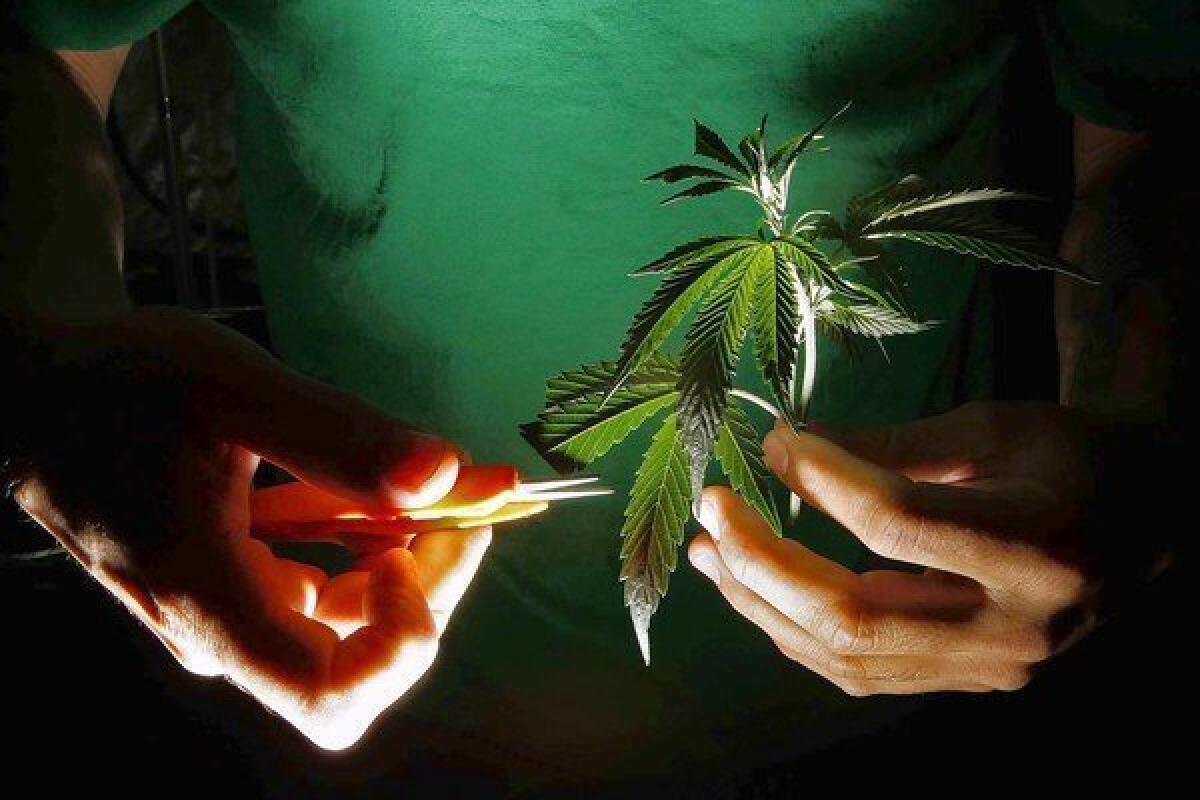Medical marijuana advocates seek reclassification of drug

- Share via
WASHINGTON — A medical marijuana advocate urged a federal appeals court to require the U.S. government to relax, or at least rethink, a more-than-40-year-old rule that treats marijuana as a highly dangerous drug with no medical value.
Federal drug regulators “have failed to weigh the evidence” from a growing number of medical studies showing that marijuana is effective for relieving pain and nausea, said Joe Elford, counsel for Americans for Safe Access.
In his legal brief, he said the Drug Enforcement Administration displayed a “bias” against marijuana by ignoring its medical benefits and exaggerating its danger. That is the only way to explain how the “federal government could conclude that marijuana is as harmful as heroin and PCP and even more harmful than methamphetamine, cocaine and opium,” he told the court.
Elford was challenging the DEA’s insistence that marijuana is properly classified as a Schedule I drug, meaning it has no accepted medical benefits and has a high potential for abuse. This classification means, for example, that doctors at the Veterans Administration may not give marijuana to a disabled veteran to treat his chronic pain, he said, citing the plight of one of the plaintiffs in the case. If marijuana were reclassified, Elford said, it would help doctors and patients by permitting its use under medical supervision.
Marijuana’s classification as a Schedule I drug dates to 1970, when Congress passed the Controlled Substances Act. On two occasions since then, marijuana advocates have petitioned the DEA to reconsider the classification, citing the medical benefits of cannabis. They also noted that 16 states and the District of Columbia have opted to allow medical use of marijuana in some instances.
But the DEA turned down the most recent petition last year and made no change in the classification schedule. By way of explanation, the agency said there was not a scientific consensus on the medical benefits of marijuana. It also said marijuana has many “chemical components” that are not well understood.
During Tuesday’s argument, a Justice Department lawyer said the government remained convinced of the danger of marijuana. “It’s the most widely abused drug in the United States,” said Lena Watkins, the government lawyer.
The case was heard by a veteran panel of three judges who questioned whether they were in a position to reject the DEA’s determination.
“Don’t we have to defer to their judgment” on what the medical studies show? asked Judge Merrick Garland. “We’re not scientists. They are.”
“The real question is to what extent we have to defer to the agency,” added Judge Harry Edwards. The two judges said they could not overturn the DEA’s decision unless they found it to be “arbitrary and capricious.”
Elford responded that the judges should send the case back to the DEA to require the agency to hold a hearing to consider research over the last decade on the benefits of marijuana.
Judge Karen Henderson, the third member of the panel, noted that changing the classification of marijuana would not decriminalize it. “It would still be illegal,” she said.
More to Read
Sign up for Essential California
The most important California stories and recommendations in your inbox every morning.
You may occasionally receive promotional content from the Los Angeles Times.













